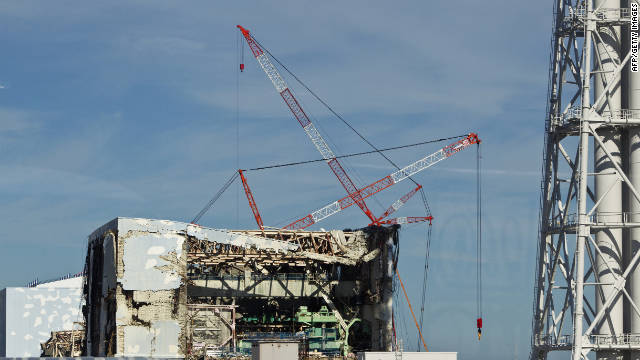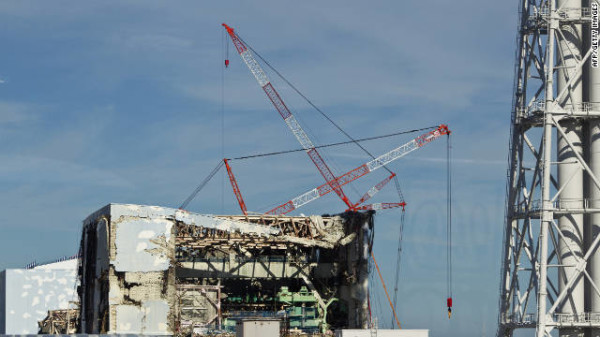
File photo of the crippled Fukushima Dai-ichi nuclear power station from November 12, 2011.
STORY HIGHLIGHTS
- Plant operators will begin the delicate work of removing nuclear fuel from Fukushima
- TEPCO will begin taking out 1,500 spent fuel units from Reactor 4 for storage
- Plant damaged by the earthquake and tsunami that struck Japan in March 2011
- Cleanup beset by numerous problems, including the leak of 300 tons of radioactive water
More than two years after an earthquake and tsunami brought disaster to a nuclear plant in eastern Japan, operators Tokyo Electric Power Co. (TEPCO) announced plans Wednesday to begin the painstaking and dangerous process of removing fuel rods from a crippled reactor at the site.
The procedure is considered a milestone in the estimated $50 billion cleanup of the Fukushima Daiichi nuclear power plant. “Fuel removal really means the start of decommissioning,” plant chief Akira Ono said, according to Japan’s Nikkei Shimbun.
When the tsunami swamped the plant, located 149 miles (240 kilometers) north of Tokyo on Japan’s eastern seaboard in March 2011, it cut the power to vital cooling systems for the three reactors in use at the time. This resulted in the second-worst nuclear accident in history — after Chernobyl in the former Soviet Union in 1986 — as the reactors melted down and leaked radioactive material into the atmosphere.
The Fukushima cleanup has been beset by numerous problems, including the leak of 300 tons of radioactive water from a storage tank.
TEPCO will begin taking out 1,500 spent fuel units from Reactor 4 for storage in safer specially designed containers, the company says. The reactor building exploded in the aftermath of tsunami likely due to a build-up of hydrogen from a neighboring reactor, according to TEPCO.
The cost of decontamination is estimated to be ¥5 trillion (U.S.$50.7 billion) or more, Japan’s Yomiuri Shimbun reported.
Fallout continues for Tokyo on the Fukushima disaster. Earlier this week, China demanded an accurate assessment of cleanup efforts.
“China follows closely the countermeasures to be adopted by Japan. We urge the Japanese side to spare no effort in minimizing the subsequent impact of the accident and provide timely, comprehensive and accurate information to the international community,” Wang Min, China’s deputy permanent representative to the United Nations, said Tuesday at a meeting of the U.N. General Assembly, according to the state-run Xinhua news agency.



Leave a reply